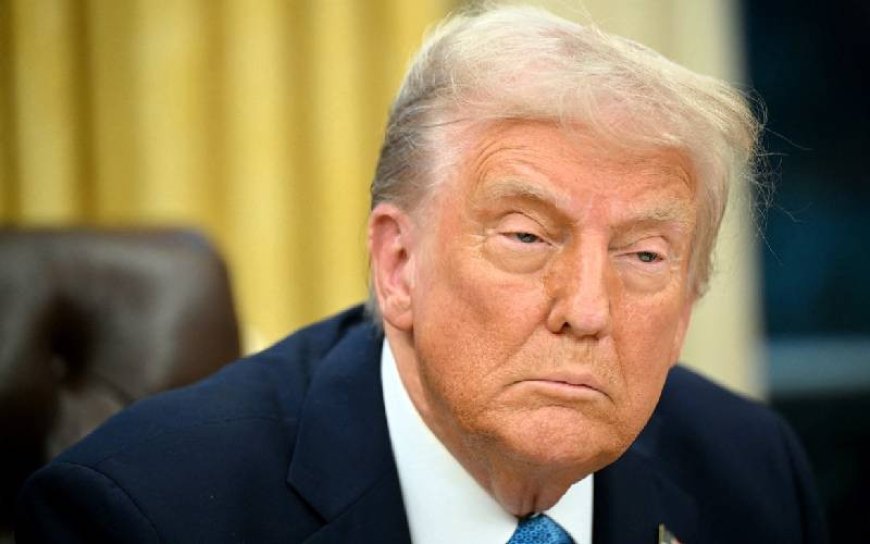U.S. Tariffs on Canada, Mexico, and China Spark Retaliatory Measures and Global Trade Tensions
Analyze the impact of recent U.S. tariffs on Canada, Mexico, and China, leading to retaliatory actions and escalating global trade tensions

In a dramatic escalation of trade hostilities, President Donald Trump has instituted substantial tariffs on imports from Canada, Mexico, and China, igniting a series of retaliatory measures from these countries. The implications of this trade war stretch beyond North America, potentially impacting the global economy and stirring tensions among long-standing allies.
This development marks a pivotal shift in U.S. trade policy, reflecting a broader protectionist stance that aims to bolster domestic industries by making foreign goods more expensive. By imposing these tariffs, the Trump administration seeks to address perceived unfair trade practices and reduce the trade deficit with these nations. Canada, with its close economic ties to the U.S., and Mexico, as a partner in the North American Free Trade Agreement (NAFTA), have reacted strongly to the tariffs.
The ramifications of this trade conflict are likely to be far-reaching. Experts warn that a full-blown trade war could disrupt supply chains, lead to higher prices for consumers, and dampen global economic growth. Furthermore, deteriorating relationships with key allies may fragment international trade agreements, complicating diplomatic relations overall.
The Tariff Announcement
On February 1, 2025, President Trump enacted an executive order that imposes a 25% tariff on imports from Canada and Mexico and a 10% tariff on all goods from China. These tariffs are positioned as essential measures to safeguard American jobs and address the rising problem of illicit fentanyl exports, which significantly impacts communities throughout the U.S. Trump’s discourse focuses on national security and economic protectionism, highlighting a fundamental aspect of his administration's approach.
Immediate Retaliation
Canada and Mexico responded quickly and firmly. Canadian Prime Minister Justin Trudeau declared a reciprocal 25% tariff on around $155 billion in U.S. imports, covering essential items like alcoholic beverages and agricultural goods. Trudeau's serious comments conveyed a deep feeling of betrayal, urging Canadians to choose domestic products to show solidarity.
President Claudia Sheinbaum of Mexico introduced retaliatory tariffs and strongly dismissed allegations of collusion with criminal groups. She took issue with the U.S. strategy for tackling drug trafficking, contending that efforts should concentrate on curbing drug sales in U.S. cities instead of assigning blame to Mexico.
The Economic Impact
Economic analysts warn that these tariffs could exacerbate inflation, contradicting Trump's claims of lowering essential goods prices. A recent report by Yale's Budget Lab suggests that American families could experience an average drop of $1,170 in disposable income due to these import duties. Industries reliant on exports to nearby countries are particularly vulnerable, anticipating price increases on a wide range of products, from food to fuel.
The likelihood of further escalation is substantial. The tariff framework includes measures to increase rates in response to retaliatory actions, creating an environment of uncertainty that may endanger economic growth in North America. Given that inflation is already a pressing concern, these new tariffs could worsen economic challenges for American voters, potentially undermining Trump's political backing just weeks into his second term.
Global Ramifications
China has expressed concerns about U.S. trade practices, stating its intention to challenge these tariffs at the World Trade Organization (WTO). Historically, the Chinese government has regulated fentanyl-related substances, emphasizing its significant counternarcotics cooperation with the U.S. The backlash from China threatens to escalate tensions between the U.S. and one of its largest trading partners.
The effects of these tariffs reach beyond North America; they indicate a potential shift in global trade dynamics. Markets worldwide are left to contend with the uncertainties arising from these policies, and many nations are paying close attention to see how their trade relationships might be impacted.
A Call for Unity
 Kinyarwanda
Kinyarwanda
 English
English








































































